Introducing the Degrowth Bike Caravan Blogpost Series
During the summer, we set off on the “Caravana Polo Decrecimiento”, a bike caravan through Galicia, with our final destination in Pontevedra at the ESEE Degrowth Conference. Of course, it was much more than pedaling through scenic landscapes – it was an immersion înto the galician resistance against green extractivism. Our trip was the second part of the Barcelona Degrowth Summer School, aimed at connecting with people on the frontlines of environmental struggles, and reflecting on how degrowth can look in practice.
We were inspired by François Schneider’s 2004 ‘degrowth walk’ with a donkey through France, engaging people în meaningful discussions on the way to the first international degrowth conference. 20 years later, here we are choosing a different type of slow mobility: the bicycle. Bicycles are affordable, accessible, and they’re a symbol of both slowing down and ecological responsibility. Plus the added value of freedom, autonomy, and the chance to connect with our surroundings in a meaningful way.
R&Di celebrated the 10th edition of the Barcelona Summer School this year, bringing into focus a relevant, current and much needed discussion – green extractivism. Within the context of the rush towards the construction of infrastructure to produce and provide renewable energy, too many social and environmental justice consequences are left out of the conversation, so we decided to see with our own eyes the impact that “green extractivism” has on local communities, and to discuss with those on the ground what a degrowth transition might look like. So, we set off, cycling across Galicia’s rural roads, with the wind in our hair and a whole lot of questions in our heads.
Along the way, we met with local activists, communities and public servants, all doing their part în the fight against losing Galicia to giant “green” projects. We were about to debate some tough topics:
- What are the impacts of green extractivism in Galicia?
- How are local communities affected by these changes?
- What would a truly democratic and decentralized degrowth transition look like here?
- Is the idea of degrowth a useful framework for those on the ground, confronting extractivist capitalism in their daily lives?
To help us dig deeper, we opted for “militant methodologies”, which are essentially politically engaged ways of observing the world. Instead of looking at things from a distance, with a detached, academic eye, we tried to see reality from the ground, through the eyes of those directly involved. We were not there to study green extractivism; but to truly understand the struggles in a way that made us part of the fight.

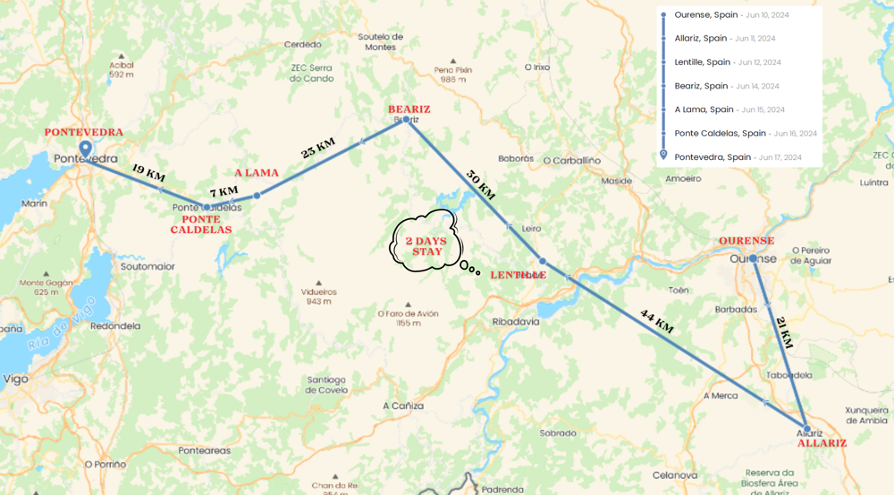
But before we dive into all that, let us share a little something we prepared for the journey: each participant received a zine to guide them and help them reflect on the trip, visualize the themes, and make the journey more than just a physical experience. It was designed to be a companion, a canvas for thoughts and ideas that bubbled up along the way.
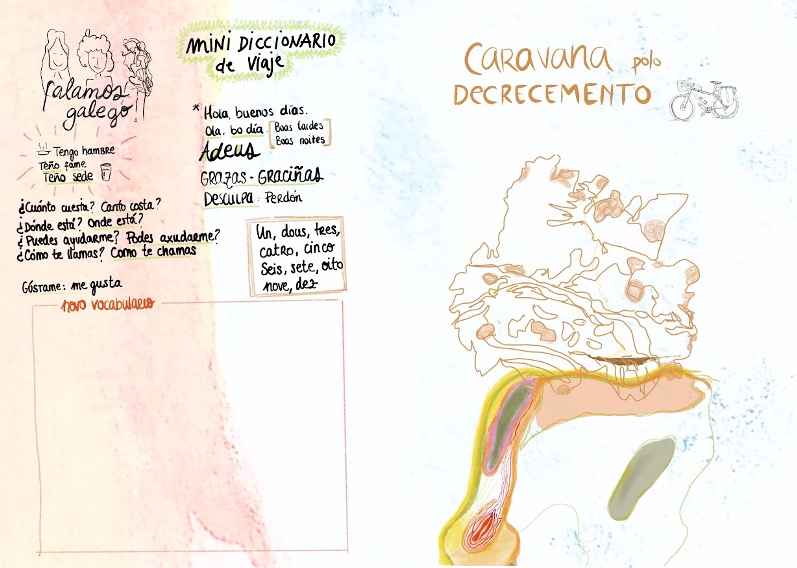
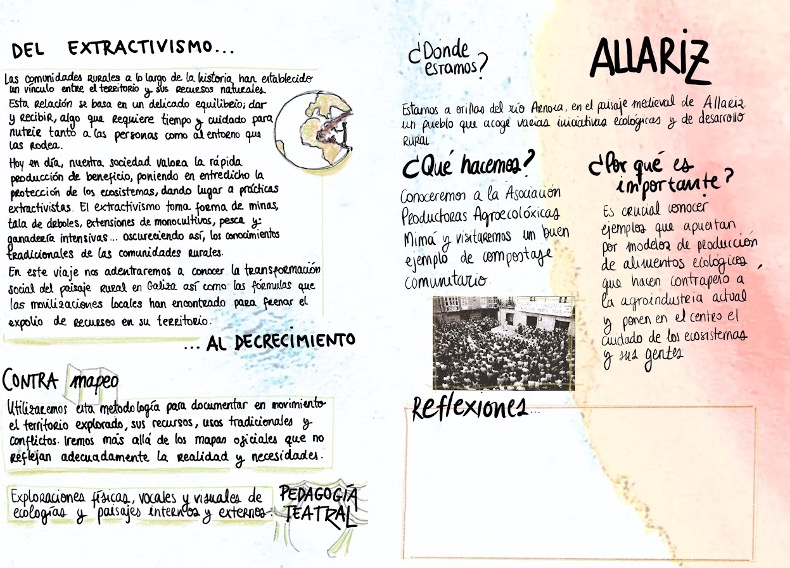
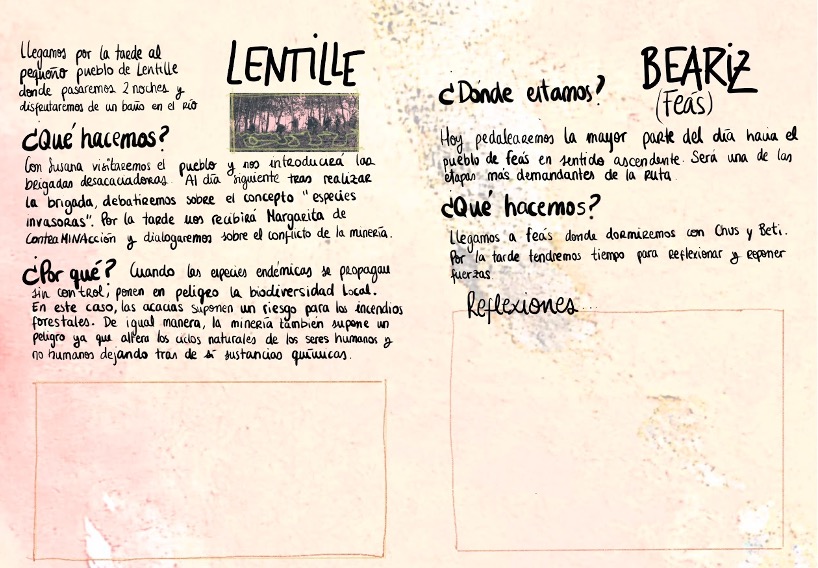
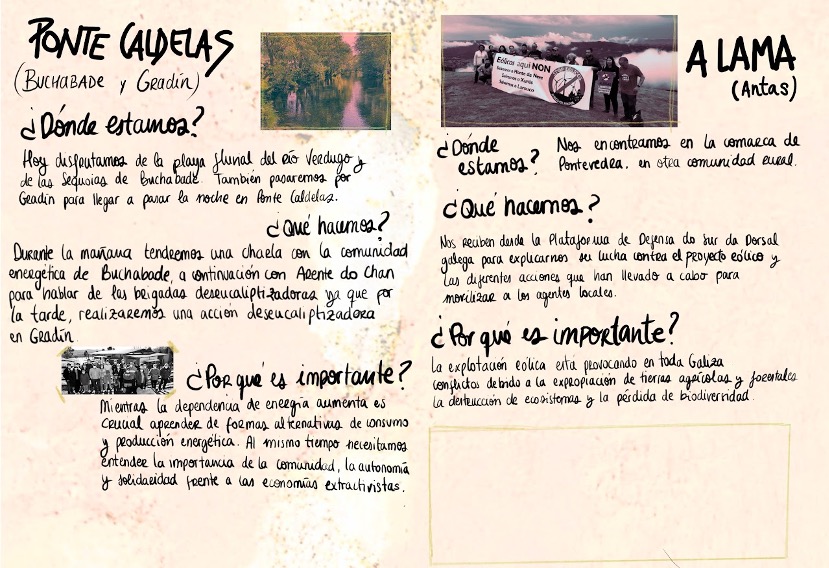
As you MUST know, political ecology looks at how social movements, indigenous groups, and everyday people protect their environments, often in the face of corporate and state power. Our summer school aimed to bring these ideas out of the classroom and into the real world. The bicycle, in its simplicity, became our way of slowing down, observing, and immersing ourselves in the territories we passed through. It allowed us to meet locals face-to-face, hear their stories, and, crucially, reflect on how degrowth could help with the problems they were facing. Putting together hands-on experience with critical reflection is what we mean by militant methodologies—it’s about letting our encounters in the field shape both personal and political change. So, as we biked from Ourense to Pontevedra we were becoming part of Galicia’s stories of resistance.
Through this series of blog posts, we’re hoping to share with you some of the key insights we gathered, to give you a taste of what it was like to bike through this beautiful, yet conflicted region, and to show you how degrowth isn’t just an academic concept—it’s a lived reality for many people fighting for their land, their livelihoods, and their futures.
We are eager to go into the specifics, share more details and especially share the insights we gained. We will do just that, în the following posts. Stay close!
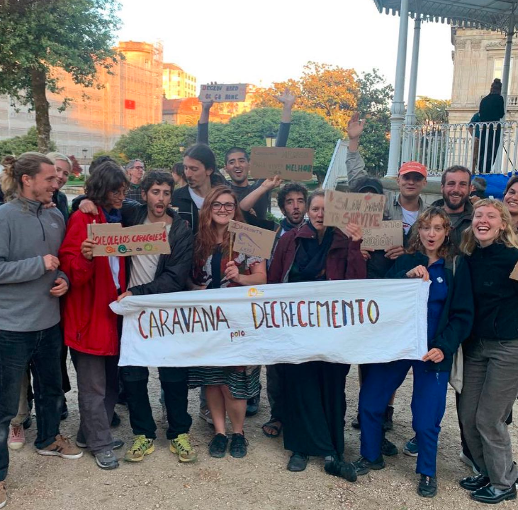
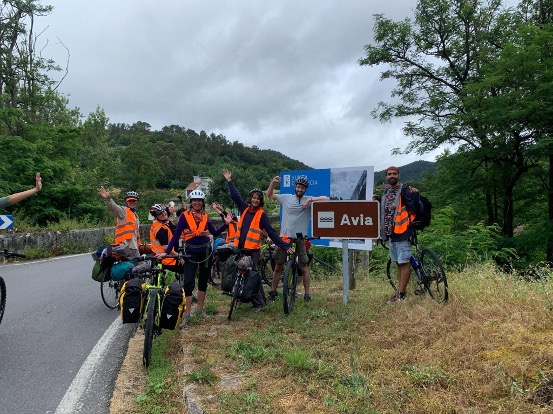
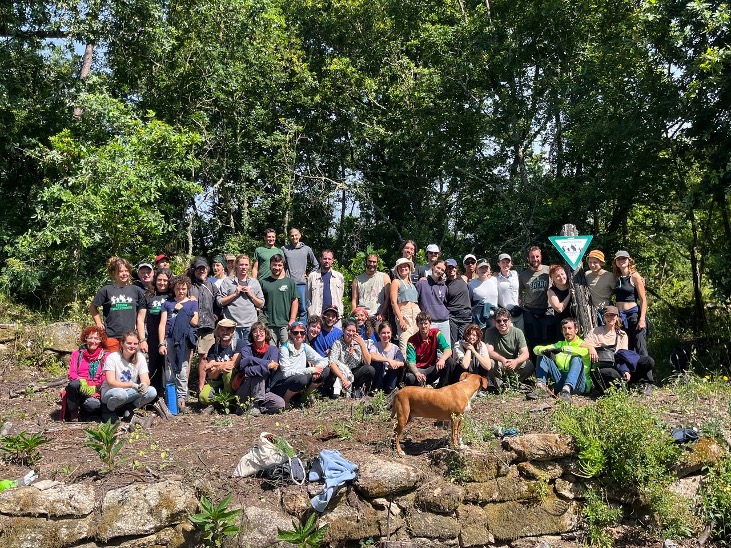
Through this series, the organizers of the 2024 Degrowth Bike Caravan (or Caravana Polo Decrecemento) will be sharing insights from their experience of biking through Galicia to the Pontevedra ESEE Degrowth Conference as part of the Barcelona Degrowth summer school, touching topics such as personal experience, local stories of struggle and resistance, militant methodologies used throughout the route with the participants, and more!
Re-adapted from the article written for the magazine Resistance (Authors: Federico Arcuri, Diana Bobiș, Lucía Muñoz Sueiro, Eva Navarro Navarro, Carlo Sella, Lorenzo Velotti)
The opinions expressed in the text do not necessarily reflect those of R&D, but are those of the authors.
